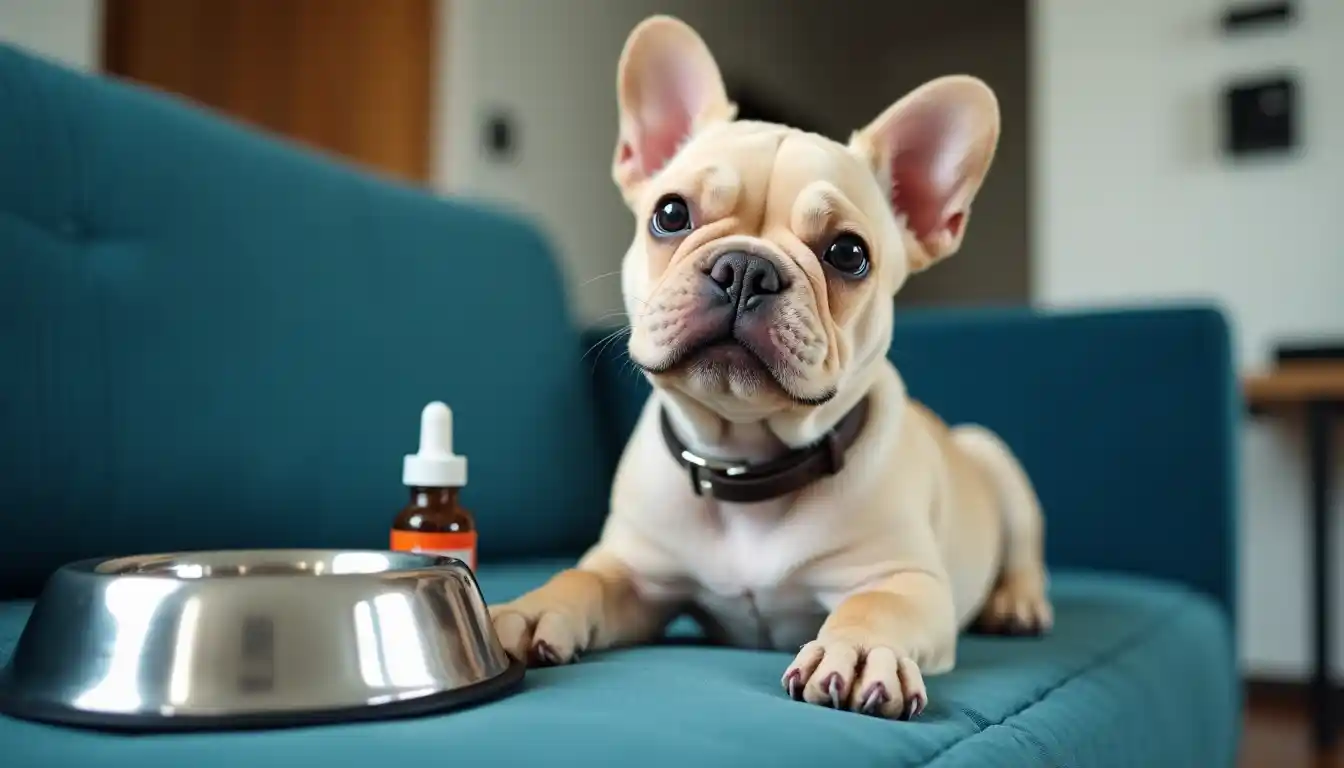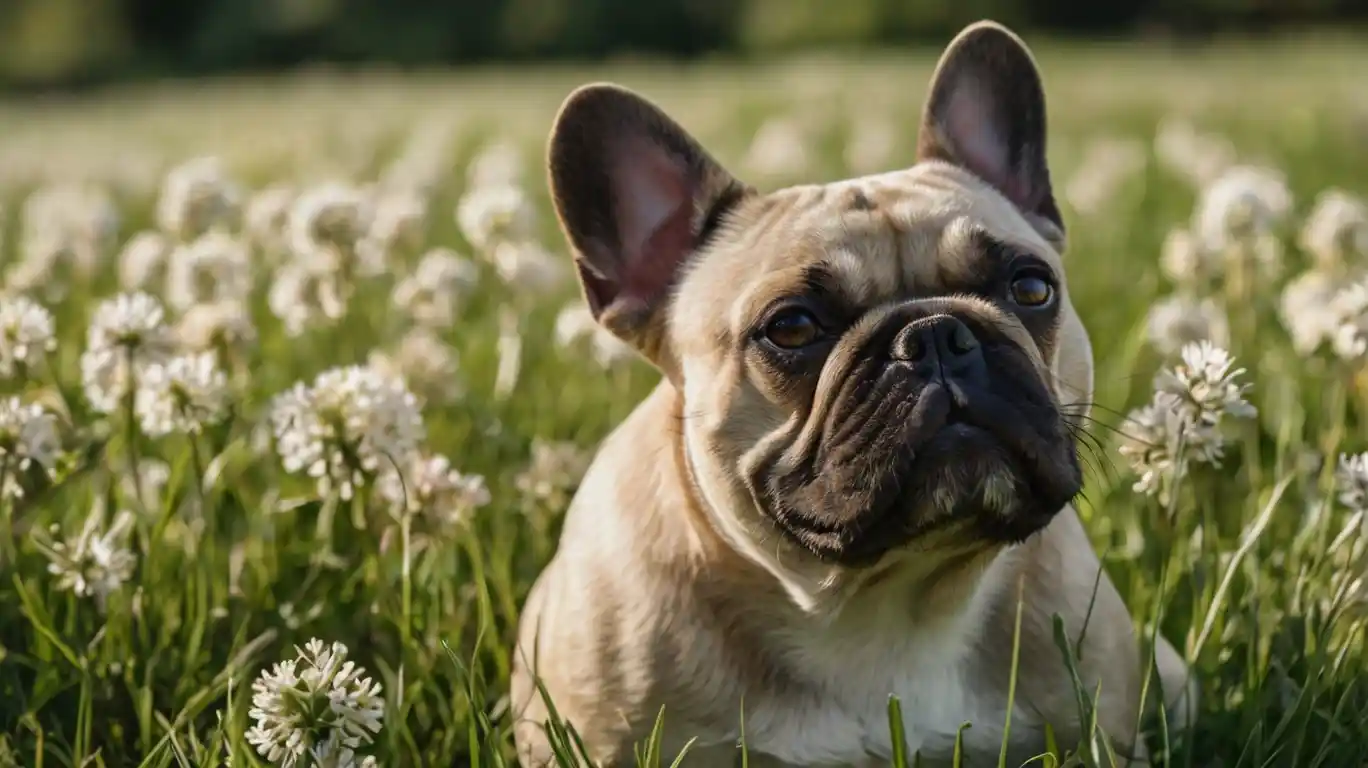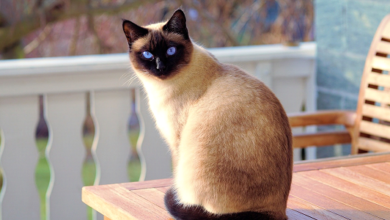7 Shocking Truths About French Bulldogs: Love, Costs & Care!

French Bulldogs have become America’s second most popular dog breed. Their registration numbers in the UK shot up by 1,317% in just ten years. These dogs catch everyone’s eye with their adorable bat ears and compact build that make them perfect for apartment living, but there’s more to their story than meets the eye. The price tag for these pets ranges from $2,000 to $8,000. Yet their life expectancy sits at just 4.5 years – by a lot lower than other dogs who live an average of 11.2 years. These sensitive companions need special care. Their unique body structure means that over 80% of French Bulldog mothers need artificial insemination and C-sections to deliver their puppies. This piece reveals seven vital facts about French Bulldogs. You’ll learn about their specific health challenges and everything you should know as a potential owner.
The True Cost of Owning a French Bulldog
Getting a French Bulldog needs smart financial planning. The original purchase price is just the start of a long-term financial commitment that lasts throughout your pup’s life.
Original purchase price range
French Bulldog prices can vary a lot based on several factors.
Standard French Bulldogs from good breeders cost between $3,500 to $5,000.
Rare colors and special features like blue coats or orange eyes can push prices up to $8,000 to $10,000
. You can find budget-friendly options through rescue organizations, where fees range from $350 to $850. The upfront cost is lower, but rescued Frenchies might need immediate medical care due to existing health conditions.
Monthly care expenses
Your French Bulldog’s monthly costs cover several key areas:
Food and Nutrition: Quality dog food made for French Bulldogs costs $80 to $100 monthly.
Some Frenchies need special veterinary diets because of allergies, which can bump food costs to $100-$150.
Grooming Requirements: Professional grooming, including baths, nail trims, and wrinkle cleaning, costs $40 to $80 every 6 to 8 weeks. Regular care helps prevent skin infections and other
health issues common to the breed.
Routine Veterinary Care: Yearly wellness care runs between $400 to $600. This has:
- Vaccinations and preventive medications
- Heartworm testing
- Regular health screenings
- Dental care
Pet Insurance: Monthly premiums run $40 to $60. Insurance is worth it because these dogs often face various health issues.
Emergency medical fund needs
Medical emergencies are a vital part of French Bulldog ownership. These dogs face several common health conditions that need serious money:
Respiratory Issues: Treatment for brachycephalic syndrome, which many French Bulldogs have,
starts at $850. Surgery might be needed, which drives costs up even more.
Orthopedic Problems: Surgery for intervertebral disk disease, a common issue, can cost around
$9,000.
Other Medical Conditions:
- Cherry eye surgery: $600
- Skin fold dermatitis treatment: $300
- Recurring ear infections: $300 per incident
Older French Bulldogs need regular blood work that costs $100 to $200 per visit. These tests check
medication effectiveness and overall health.
Owning a French Bulldog typically costs between $13,000 to $44,400 over their lifetime. This amount
can go up if your dog develops multiple health issues or needs extensive vet care.
Experts suggest keeping an emergency fund of at least $5,000. Getting good pet insurance early, before any health issues show up, helps manage these costs better.
Picking a good breeder who does health screenings and provides genetic testing documentation might cost more now but can save thousands in vet bills later. The real cost of French Bulldog ownership goes way beyond the reach and influence of the purchase price. Smart financial planning helps prepare for both routine care and unexpected medical emergencies.

Health Challenges Every Owner Should Know
Knowing your French Bulldog’s health challenges is a vital step toward responsible ownership. These lovable companions face unique medical conditions that need careful monitoring and proactive care.
Common breathing issues
Brachycephalic Airway Syndrome (BOAS) affects all but one of these dogs in different ways. Their
distinctive short-nosed skull structure creates multiple breathing challenges.
Narrowed Airways: French Bulldogs often develop stenotic nares (narrowed nostrils) and an
abnormally narrow trachea that makes breathing harder. These structural issues force them to work
much harder just to get enough air.
Soft Palate Problems: The soft tissue at the back of their mouth grows too long for their
shortened airways. This extra tissue blocks their airway and leads to:
- Sleep apnea and poor rest patterns
- Regular gagging and retching
- Exercise problems
- Higher risk of vomiting
Temperature Sensitivity: French Bulldogs face double the risk of heat stroke compared to other
breeds.Their limited breathing system makes it hard to cool down through panting.
Warning Signs: Look out for these signs that indicate respiratory distress:
- Loud breathing or heavy snoring
- Open-mouth breathing
- Blue-tinted tongue or gums that indicates oxygen deprivation
- Sudden collapse during activity
Many French Bulldogs need special surgery to fix these breathing problems. Surgery
comes with its own risks since these dogs don’t deal very well with anesthesia.
Joint problems to watch for
French Bulldogs face several major joint-related health issues that need careful monitoring:
Intervertebral Disk Disease (IVDD): This condition usually shows up in Frenchies after age 2-3
years. IVDD signs include:
- Dragged or knuckled paws
- Hunched back
- Sudden pain cries when touched
- Unexpected leg paralysis
- Loss of bladder control
Hip Dysplasia: This inherited condition leads to loose hip joints. Watch for:
- “Exotic belly dancer” side-to-side pelvis movement
- “Frog sitting” with spread back legs
- Limited motion range
- Leg muscle loss
Prevention Strategies: These approaches help reduce joint issues:
- Keep a healthy weight to protect joints
- Stop furniture jumping
- Avoid stairs and slippery floors
- Add joint supplements with glucosamine and chondroitin
Medical Considerations:
French Bulldog’s hip dysplasia shows up differently. Unlike bigger breeds, most Frenchies show few pain signs or arthritis despite having the condition. The symptoms often show up as knee problems instead of
typical hip pain.
French Bulldogs might need emergency vet care for these conditions.
Some owners spend up to $17,000 in just the first week for critical care. Finding a vet with unique
experience treating brachycephalic breeds helps manage these health challenges better.
Daily Life With a French Bulldog
Life with a French Bulldog requires adapting to their unique daily routines and specific care needs. A good understanding of these patterns creates harmony between you and your four-legged friend.
Exercise requirements
French Bulldogs do well with moderate physical activity. They need about 60 minutes of
daily exercise. Their flat-faced structure requires careful attention to exercise intensity. Short,
gentle walks work best when split into multiple sessions throughout the day.
The exercise needs of French Bulldog puppies follow a simple rule: 5 minutes per month of age. A
four-month-old puppy should exercise for 20 minutes each day. This careful approach helps prevent joint and mobility problems as they age.
Exercise Guidelines:
- Skip strenuous activities, particularly in temperatures above 70 degrees Fahrenheit
- Look for fatigue signs like excessive panting or foamy saliva
- Take walks during cooler morning or evening hours
- Pick a harness over a collar to protect their airways
Feeding schedule
French Bulldogs need a well-laid-out feeding routine.
Adult Frenchies should eat twice daily, 12 hours apart. Puppies need more meals – three to four times
daily until they turn one year old.
Meal Timing Recommendations:
- Morning meal: Around 6:30 AM
- Midday meal (puppies): Noon
- Evening meal: Between 5-6 PM
Regular feeding times help their digestive system work better and prevent stomach acid problems.
French Bulldogs might throw up bile if they go without food for more than 12 hours.
Dietary Considerations:
- Choose age-appropriate food (puppy, adult, or senior formulations)
- Watch portion sizes to avoid obesity
- Keep fresh water available all day
- Try grain-free options if they have sensitive stomachs
Sleep patterns
French Bulldogs have interesting sleep habits and rest for much of their day.
Adult Frenchies need 12 to 14 hours of sleep daily, while puppies might sleep up to 20 hours.
Typical Sleep Schedule:
- Night sleep: 10 PM to 5 AM
- Morning naps: Right after breakfast
- Afternoon rest: Usually after activity
- Evening downtime: Starts around 8 PM
Sleep quality matters just as much as quantity.
French Bulldogs might face sleep challenges due to their brachycephalic nature.
Some Frenchies match their sleep patterns to their owner’s energy levels – they become active when their
humans move around and rest when their owners sit still.
Sleep Environment Tips:
- Set up a comfortable, designated sleeping area
- Stick to regular bedtime routines
- Keep the temperature right
- Watch for unusual sleep patterns or breathing issues
French Bulldogs often show what owners call “zoomies” – quick bursts of energy between naps. These playful moments usually happen in the afternoon and evening, creating perfect chances for play and bonding. Note that each French Bulldog has unique traits that affect their daily routines. These general guidelines should flex to fit your pet’s individual needs while keeping the structure they need to thrive.
French Bulldog Temperament Facts
French Bulldogs stand out in the canine world with their cute bat-like ears and a personality all their own. These small companions pack a special mix of traits that have made them one of the most popular breeds worldwide.
Personality traits
French Bulldogs have a balanced temperament that fits well with many living situations.
These smart and loving dogs bark only when needed, which makes them great watchdogs. They show their gentle side every day but keep a playful spirit that brings joy to their owners.
Attention-Seeking Nature: French Bulldogs just need lots of attention from their humans. They follow their owners everywhere and try to get physical contact whenever they can. This clingy behavior comes from their strong family bond, which sometimes leads to separation anxiety.
Emotional Intelligence: These dogs show amazing awareness of their environment and family dynamics.
They learn best through positive reinforcement and show their smarts by:
- Quickly fitting into house routines
- Building strong emotional connections with family
- Staying alert to what’s happening around them
Playful Yet Calm: French Bulldogs switch between active play and quiet rest time.
Owners call their sudden bursts of energy “zoomies” – quick spurts of playful activity followed by
long rest periods. This mix of energy levels works well for different households, from busy families
to older folks looking for company.
Social behavior
French Bulldogs have unique social traits that new owners should know about. They interact with pets and people in ways that make them different from other breeds.
Interaction with Other Dogs: French Bulldogs deal with specific challenges when meeting other dogs.
Their body shape affects how other dogs see them:
- Other breeds might think their upright ears mean aggression
- Their flat face and missing tail make it hard for dogs to understand their signals
- Other dogs might mistake their breathing sounds for growling at dog parks
Breed-Specific Social Preferences: Many French Bulldogs prefer hanging out with other
flat-faced breeds. This likely happens because they communicate the same way and have similar energy
levels.
Human Relationships: These dogs create deep bonds with their families and often pick a favorite
family member. They love meeting new people, but early socialization plays a vital role in developing good behavior.
Social Development Requirements: Good socialization as puppies shapes their adult behavior. French
Bulldogs might develop these issues without enough exposure to different situations:
- Picking and choosing their friends
- Getting too protective of their space
- Getting nervous in new places
Temperament Variations: Each French Bulldog has its own personality. Some love being social while others stay more reserved. Good training and socialization help shape these natural traits into better
behaviors.
Children and Family Life: French Bulldogs get along great with kids when both get the right
training. Their playful nature fits perfectly with family life, but adults should always watch them
around small children.
This look at their temperament helps set real expectations for life with a French Bulldog. Their special personality traits and social behaviors need careful thought to create a happy life between these charming dogs and their families.

Essential Care Requirements
A good care routine will keep your French Bulldog healthy and happy. These unique dogs need special attention to their grooming, temperature control, and health needs.
Grooming needs
French Bulldogs need regular grooming even with their short coats. A rubber grooming mitt or soft-bristle brush will help remove loose hair and spread natural skin oils when used weekly.
Your dog’s lifestyle will determine how often they need baths, ranging from weekly to every six weeks.
Face and Wrinkle Care: Your Frenchie’s face needs extra care. Use unscented baby wipes or medicated wrinkle wipes to clean facial wrinkles daily and prevent bacteria from growing. Make sure to dry these areas well to stop infections from developing.
Essential Grooming Tasks:
- Clean ears monthly or every two weeks if wax builds up fast
- Brush teeth every other day to keep dental disease away
- Cut nails at least every two weeks
- Keep tail pockets clean with regular checks
Your French Bulldog should never get a shave. Their fine hair shields their skin and helps control body temperature.
Temperature control
French Bulldogs struggle with temperature control. They face special challenges in hot and cold weather that need careful watching.
Heat Management: These dogs face double the risk of heat problems compared to other breeds. Here’s how to prevent overheating:
- Walk your dog early morning or evening
- Keep indoor temperatures under 75°F (24°C)
- Make sure fresh water and shade are always available
- Use cooling mats when it’s warm
Cold Weather Protection: Single-coated French Bulldogs get uncomfortable below 40°F.
Winter care includes:
- Getting warm sweaters or coats
- Keeping paws safe from ice and road salt
- Reducing time outside in extreme cold
- Looking for signs of shivering or discomfort
Health monitoring
Watching your French Bulldog’s health helps catch problems early and keeps them healthy.
Daily Checks: Look for:
- Irritation in skin folds
- Unusual breathing sounds
- Changes in energy and appetite
- Damage to paw pads
Professional Care: Take your dog to the vet twice yearly to check breed-specific health issues. These visits should include:
- A full physical exam
- Updated shots
- Dental checkup
- Weight check
Skin Health: Allergic Dermatitis often affects French Bulldogs. Watch out for:
- Red or inflamed skin
- Too much scratching
- Different coat feel
- Hot spots or dry areas
Emergency Signs: Get to the vet right away if you see:
- Hard time breathing
- Sudden collapse
- Eye problems
- Walking issues
Keep good health records to track patterns and get help when needed. A digital health diary or app works well to record observations, medicines, and vet visits.
Find vets who know brachycephalic breeds well. They understand your French Bulldog’s special needs and can help prevent health issues before they start.

Training Your French Bulldog Puppy
Your French Bulldog puppy’s success starts with a good grasp of their unique training needs. These smart but occasionally headstrong companions respond well to steady, positive reinforcement that recognizes their sensitive personality.
Basic command tips
French Bulldogs learn commands best through positive reinforcement. They want to make you happy and this makes them eager learners, as long as you stay patient and consistent. The best time to start command training is at 8 weeks old to build good habits.
Essential Commands to Master:
- Sit and Stay: These basic commands are the foundations of more advanced training
- Find It: This fun command develops problem-solving skills
- Leave It: A significant safety command that stops your pup from grabbing harmful items
- Drop It: You need this to make them release forbidden items from their mouth
Training Success Strategies:
- Use clear, consistent verbal cues
- Give rewards right after correct behavior
- Training sessions should be short and fun
- Practice commands in new places
A dog whistle with three short blows works well as your command signal to name just one example, especially when you have noisy surroundings where voice commands might get lost.
House training timeline
House training needs your steadfast dedication and understanding of your French Bulldog’s physical limits. Young puppies need bathroom breaks every two hours during their first few months.
8-12 Weeks Stage:
- Take puppies out every 2-3 hours
- Set regular feeding times
- Watch them after meals, naps, and play sessions
- Pick one spot outdoors for potty breaks
3-4 Months Progress:
- Slowly increase time between breaks
- Look for signs like circling or sniffing
- Stick to feeding schedules
- Keep up positive reinforcement
Crate Training Benefits:
- Stops separation anxiety
- Makes a safe space to rest
- Helps create routines
- Makes house training faster
Training Schedule Guidelines:
- Morning: Right after waking
- Mid-morning: After first meal
- Afternoon: After naps and play
- Evening: Before bed
- Night: Once or twice for young puppies
Most French Bulldogs learn reliable house training in 4-6 months. Some might need up to 8 months to master it fully. This longer timeline comes from their independent nature rather than lack of smarts.
Common Challenges:
- Excited peeing during greetings or play
- Marking in new places
- Teen phase setbacks
- Weather affecting outdoor habits
The quickest way to success is staying consistent. French Bulldogs thrive on routine and clear rules. Never
punish accidents because these sensitive dogs don’t respond well to negative feedback.
Success Indicators:
- Regular use of designated potty areas
- Clear signs when outdoor breaks are needed
- Fewer indoor accidents
- Better bladder control
Note that each French Bulldog learns at their own speed. Some pick things up quickly, while others need extra time and patience.
Success comes from positive reinforcement and adapting your approach based on your puppy’s progress.
Living Space Considerations
Your French Bulldog’s well-being depends heavily on their living space. These adaptable companions adjust easily to different living arrangements and fit right in with various home settings.
Apartment suitability
French Bulldogs make great apartment pets because they need minimal exercise and rarely bark. A space of just 30 square feet per dog works perfectly for these compact pets.
They’re just as happy in a high-rise apartment as they are in a large house.
Space Requirements:
- A well-ventilated indoor spot
- Space for a bed and toys
- Easy-to-reach water and food areas
- Room for indoor playtime
Your French Bulldog needs their own special space to feel comfortable and secure.
Their personal area should have soft blankets, favorite toys, and a cozy bed. This setup will give
them a routine and help them adjust better to new surroundings.
Temperature Considerations: The living space must work with their sensitivity to weather changes.
French Bulldogs need:
- Good airflow throughout
- Air conditioning access
- Shelter from extreme weather
- Temperature-controlled indoor areas
Outdoor space needs
French Bulldogs can stay healthy and active without a big yard. However, some outdoor features are
vital for their safety and happiness.
Yard Setup Requirements:
- 4-foot-tall secure fencing
- Small gaps between fences
- Regular escape route checks
- Plenty of shaded areas
Houses with yards can benefit from a doggie door. French Bulldogs learn to use these quickly, which
lets them:
- Take bathroom breaks on their own
- Control their time outside
- Keep their daily schedule
- Balance their energy naturally
Safety Measures: Your outdoor area needs specific changes to keep your French Bulldog safe:
- Get rid of harmful plants
- Pick pet-friendly yard materials
- Set up proper drainage
- Make specific potty spots
Temperature Management: Weather monitoring is key for outdoor time.
French Bulldogs handle temperature differently:
- Some do fine at -10°C with proper gear
- Others get cold at 0°C
- Most need winter clothing
- All should limit time in harsh weather
Exercise Considerations: While they don’t need lots of outdoor space, French Bulldogs benefit
from:
- Quick, watched play sessions
- Safe walking areas
- Protected potty spots
- Shaded rest zones
Enrichment Features: Your outdoor space can include:
- Brain-stimulating toys
- Small water features
- Simple obstacle courses
- Digging-friendly sand areas
Apartment dwellers without private outdoor space should live near dog-friendly areas. Many urban
spots offer great features like:
- Several nearby dog parks
- Places to eat with your pet
- Close-by vet clinics
- Dog walking services
French Bulldogs must live indoors. Their breathing issues and temperature sensitivity mean they need
indoor living with supervised outdoor time. This mix keeps them safe while letting them enjoy both worlds.

Finding a Reputable French Bulldog Breeder
Your French Bulldog experience begins with finding the right breeder. The breed’s rising popularity makes it vital to identify ethical breeders among many questionable operations.
Red flags to watch for
Several warning signs point to unethical breeding practices. Breeders who always have multiple litters or breed dogs under two years old often run puppy mills instead of quality breeding programs.
Concerning Practices:
- Breeding non-standard colors or advertising “rare” coats
- Refusal to share health testing documents
- A social-first approach to selling puppies
- Not letting buyers visit their facilities or meet in person
Quality breeders won’t advertise “exotic” or disqualifying colors like blue, liver, or black-and-tan.
You should also avoid breeders who only do DNA testing without detailed health screenings.
Questions to ask
Finding good breeders means asking the right questions about their program and practices. Professional breeders welcome your questions and stay in touch throughout the process.
Essential Health Inquiries:
- Proof of OFA CHIC certification
- Results of spinal CT scans or x-rays for vertebral malformations
- Health testing done on breeding stock
- Complete vaccination records and wellness checks
Look at the breeder’s dedication to the breed too. Good breeders usually participate in dog shows or agility trials. They love to talk about their breeding philosophy and plans to improve the breed.
Contract and Support:
- Sample contract with health guarantees
- Clear return policy
- Spay/neuter rules for companion dogs
- Available support after purchase
Good breeders keep detailed records and share information about their program openly.
They provide references from past buyers and want you to visit their facility.
These breeders also limit breeding, allowing each female only one litter per year.
Professional Standards:
- Active membership in recognized breed clubs
- Taking part in breed-specific health programs
- Records of parent dogs’ achievements
- Well-laid-out puppy socialization plans
Reliable breeders take pride in their program through proper documentation, health testing, and buyer support. They breed to improve health and temperament, not profits. These breeders want their puppies in the best homes and will ask you many questions too.
It’s worth mentioning that good breeders rarely have puppies ready immediately. This waiting
period lets them do proper health screening and gives each puppy enough attention during key development stages.
Conclusion
French Bulldogs just need you to think carefully before you welcome them home. These charming companions give exceptional love and adapt easily to different homes. However, their specific health needs, care requirements, and financial commitments will shape your experience as an owner. You should know your Frenchie’s unique traits to set realistic expectations. These dogs need regular medical checkups, careful temperature monitoring, and dedicated daily care routines. The lifetime costs typically range between $13,000 to $44,400, so careful financial planning matters greatly.
Your journey with these beloved pets begins by finding a reputable breeder who focuses on health testing and ethical breeding. With proper preparation and care for their well-being, French Bulldogs give their families devoted companionship and endless entertainment. They become cherished family members despite their challenges.
If you wants to Know about other Dog kindly visit our website: PetLifeStories





